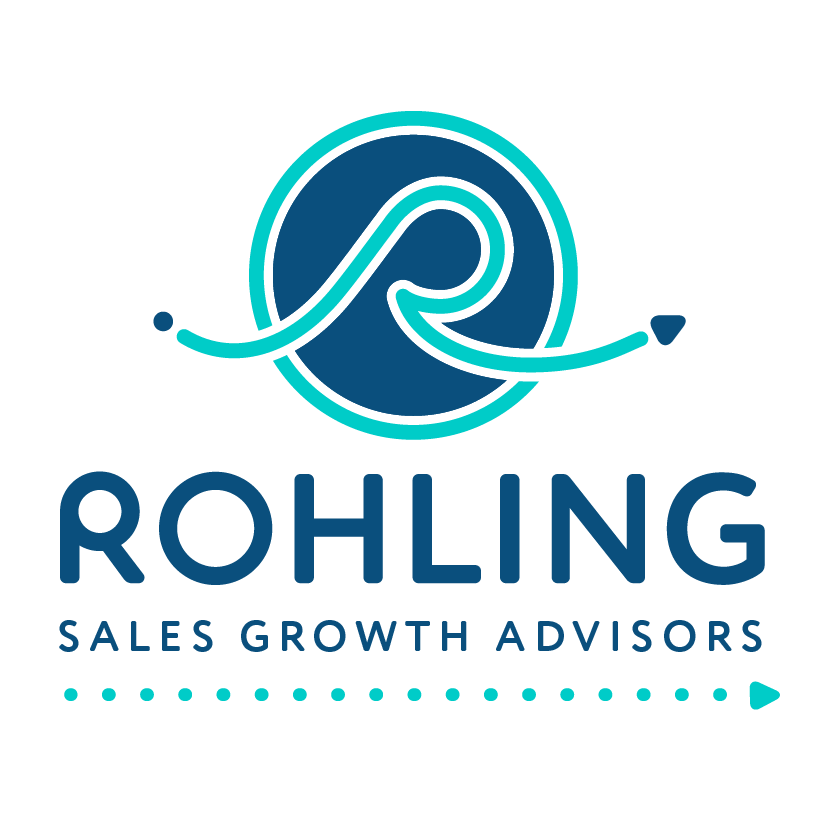Business growth has never been easy — but in today’s climate, the challenge feels relentless. Strategy and tactics that once fueled success now struggle to keep pace with the modern business environment. Why? The list is long and familiar: rising competition, disruptive technology, the rise of AI, employee retention struggles, talent shortages, rising costs, pricing pressures, leadership gaps, inflation, margin erosion…the list goes on.
The bottom line: there’s no shortage of challenges for business leaders to navigate. But here’s the opportunity — what if instead of just surviving, we chose to grow in a way that endures through these headwinds? What if the key to growth isn’t complexity or volume, but simplicity?
The Trap of Imbalance
I’ve seen too many businesses fall into extremes that undermine long-term growth.
Some leaders hyper-focus on operations. They optimize processes, cut costs, and drive efficiency — but in doing so, their business development efforts wither. The pipeline dries up, and while today feels stable, tomorrow becomes uncertain.
On the flip side, some organizations obsess over sales. They push activity, chase metrics, and drive revenue — but forget the critical truth: growth doesn’t matter if you can’t deliver consistently or sustain customer relationships. Churn becomes the silent killer.
Both traps stem from the same root problem: imbalance. And imbalance thrives in environments where complexity reigns. The busier leaders get, the more they confuse “activity” with “progress.”
The Answer: Simplifying in a Complex World
I won’t bore you with overused buzzwords like “strategy, marketing, sales, and leadership.” Of course, those matter. But the key to enduring growth today isn’t found in creating more plans, adding more tools, or chasing more data.
The key is simplifying.
At first, that sounds counterintuitive. After all, we live in a world overflowing with advanced tools to automate outreach, track sales activity, and manage operations. But buried inside this abundance is a hidden truth: the end result of technology should be simplicity.
Simplicity doesn’t mean doing less. It means focusing on what matters most, cutting the noise, and aligning your team around clear, human-centered outcomes.
A New Growth Paradigm: Known, Loved, Trusted
So how do we simplify amid chaos? The answer lies in shifting the paradigm. Stop thinking only in terms of “strategy, marketing, and sales.” Instead, reframe growth around three simple questions:
- How many of the right people know us?
Visibility matters. If your market doesn’t know who you are, your growth will always stall. But it’s not about shouting louder — it’s about being known by the right audience, in the right way. - How many of them love us?
Awareness alone won’t cut it. Do your prospects and customers feel connected to your brand? Do they value your story, your culture, and your way of doing business? Love is about emotional connection, not just functional utility. - How many of them trust us?
Trust is the ultimate growth currency. When your market believes in your ability to deliver, when they see you as reliable and authentic, sales conversations shift. You’re no longer competing on price — you’re competing on trust.
This framework — Known, Loved, Trusted — becomes the foundation of growth that endures.
Building Simplicity into Your Growth Engine
Once you embrace this mindset, the practical path forward becomes clear. Growth is no longer about chasing every metric — it’s about aligning every activity around being Known, Loved, and Trusted.
- Simplify Strategy
A strategy doesn’t need to be a 100-page deck. It needs to be a simple, clear direction that your entire team understands. Where are we headed? Why does it matter? How will we measure success? If everyone can’t answer those three questions, you don’t have strategy — you have confusion. - Clarify Marketing
Marketing isn’t about creating noise; it’s about creating clarity. When you market from a KLT lens, you focus on the right people, the right stories, and the right channels. You measure not just activity, but resonance — how many people truly connect with what you’re saying? - Streamline Sales
Sales should feel like a natural extension of trust, not a grind of chasing quotas. With a simplified approach, sales becomes the polite follow-up to marketing activity, rooted in genuine relationship-building. Instead of pushing deals, your team pulls opportunities through connection and consistency.
The Beauty of Simplicity
When businesses simplify, remarkable things happen. Pipelines grow — not from sheer volume, but from focus. Deals close — not from pressure, but from trust. Teams align — not because of endless meetings, but because the path is clear.
Simplicity drives activity that matters. It eliminates wasted motion. It reduces the friction between strategy, marketing, and sales. And most importantly, it creates growth that endures — because it’s built on relationships, not tactics.
The Future Belongs to the Simplifiers
We live in a world that will only grow more complex. AI will accelerate. Competition will intensify. Hiring will remain a challenge. Costs and pricing will continue to pressure margins. None of that is going away.
But the businesses that thrive won’t be the ones who pile on more tools, more processes, or more noise. They will be the ones who simplify.
They’ll focus on being Known, Loved, and Trusted. They’ll build strategies their teams can understand and act on. They’ll market with clarity and connect with authenticity. They’ll sell not from fear, but from confidence.
And in doing so, they’ll build growth that doesn’t just survive the chaos — it endures through it.
